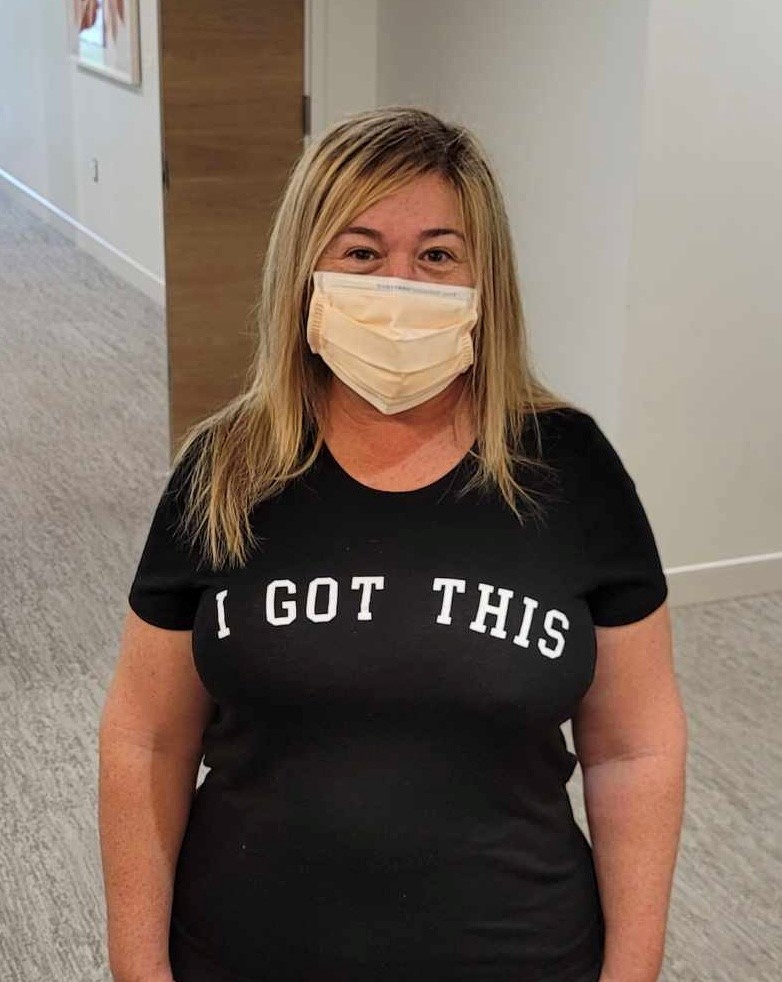In the summer of 2020, I felt a lump in my breast which I brought up to my doctor at the time. I knew something didn’t feel right, but with no physical symptoms, I was told that it was likely dense breast tissue and not to worry.
In May 2021 I went for a routine mammogram. I was called back to the office for an ultrasound and then a biopsy. I received a call a few days later saying I had stage 2 HER2-positive breast cancer.
I was shocked to learn about my diagnosis since there was no family history of any kind of cancer.
Thanks to the support of my family and friends, I was able to get an appointment at Memorial Sloan Kettering in NYC. A month later I had a lumpectomy and sentinel lymph node biopsy. After surgery I found out that my lymph nodes and margins were clear, my ONCA score was a 1 and I did not have the BRCA gene. I did 4 weeks of radiation and thought I was going to be cancer-free. This was great – I just have to go for mammograms every 6 months along with blood work and I’ll be fine. Unfortunately, that was not the case.
In June 2022, on a routine 6-month oncology appointment, I found out that one of my tumor markers was elevated. After an MRI, PET Scan, liver biopsy and more blood work – I found out that the cancer had spread to my liver, and I now have Stage 4 metastatic breast cancer. To say I was devastated is an understatement. I had several consultations with a liver oncologist and decided to have a liver ablation which, according to the Doctor, would prolong my life. This procedure was the most painful recovery. Months went by with regular blood work, scans and MRI appointments. My oncologist suggested I meet with a gynecological oncologist. My cancer is fueled by estrogen so removing that from my body is critical. A couple of months ago I had a partial hysterectomy. Thankfully, this recovery was easier, but going to the hospital and being treated for cancer never gets easier.
I have since learned from further exploration that my cancer was certified as a causal occurrence from the aftermath of the September 11 terrorist attacks. After working across the street from the site of the World Trade Center buildings for years before, I was only decades later beginning to show symptoms of illness.





